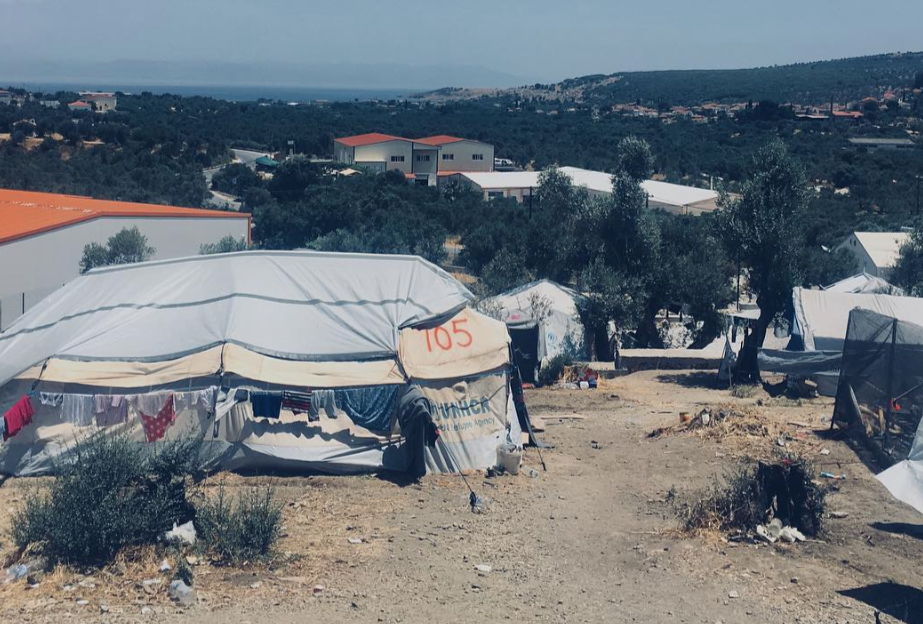
In his temporary home inside the Moria Camp, Ahmad struggles to find room in a small tent where 10 others are stacked side by side. He lies awake most nights, too afraid to sleep. “Children are being raped and assaulted. It is a mess. I sometimes I forget that I am in Europe,” he revealed. Ahmad has no personal belongings, no job and no hope. He’s been on the Greek island of Lesvos for almost two years now, living in the Moria Camp. This is his story.
In 2015 Europe experienced an influx of people escaping war-torn Syria and Ahmad, whose last name will not be used for safety reasons, was one of the millions who fled his country. In an exclusive interview with The Voluntourist, Ahmad details his experience as a Syrian refugee and what his daily life is like inside Greece’s Moria Camp.
The Voluntourist: Why did you leave Syria?
Ahmad: I left Syria because of the war. I am a young man and if I did not leave than they will take me to join the army with [the] government or with groups against government. I don’t like fighting or war. I want to live in peace. I don’t want to be part of corruption or killing and I don’t want this to be in my heart that I do something bad. I have relatives maybe there, but I have no connection to anyone in Syria. The electricity comes and go. [The] last time I speak to family [was] maybe four months ago. I don’t know what happen to them now if they have no phone anymore or if something happened to them I really don’t know. I left my country in 2016. I left with my young brother and my cousin from my father’s side. The rest of my family is gone.
The Voluntourist: How long how you been in Greece?
Ahmad: I arrived in Greece beginning of 2017.
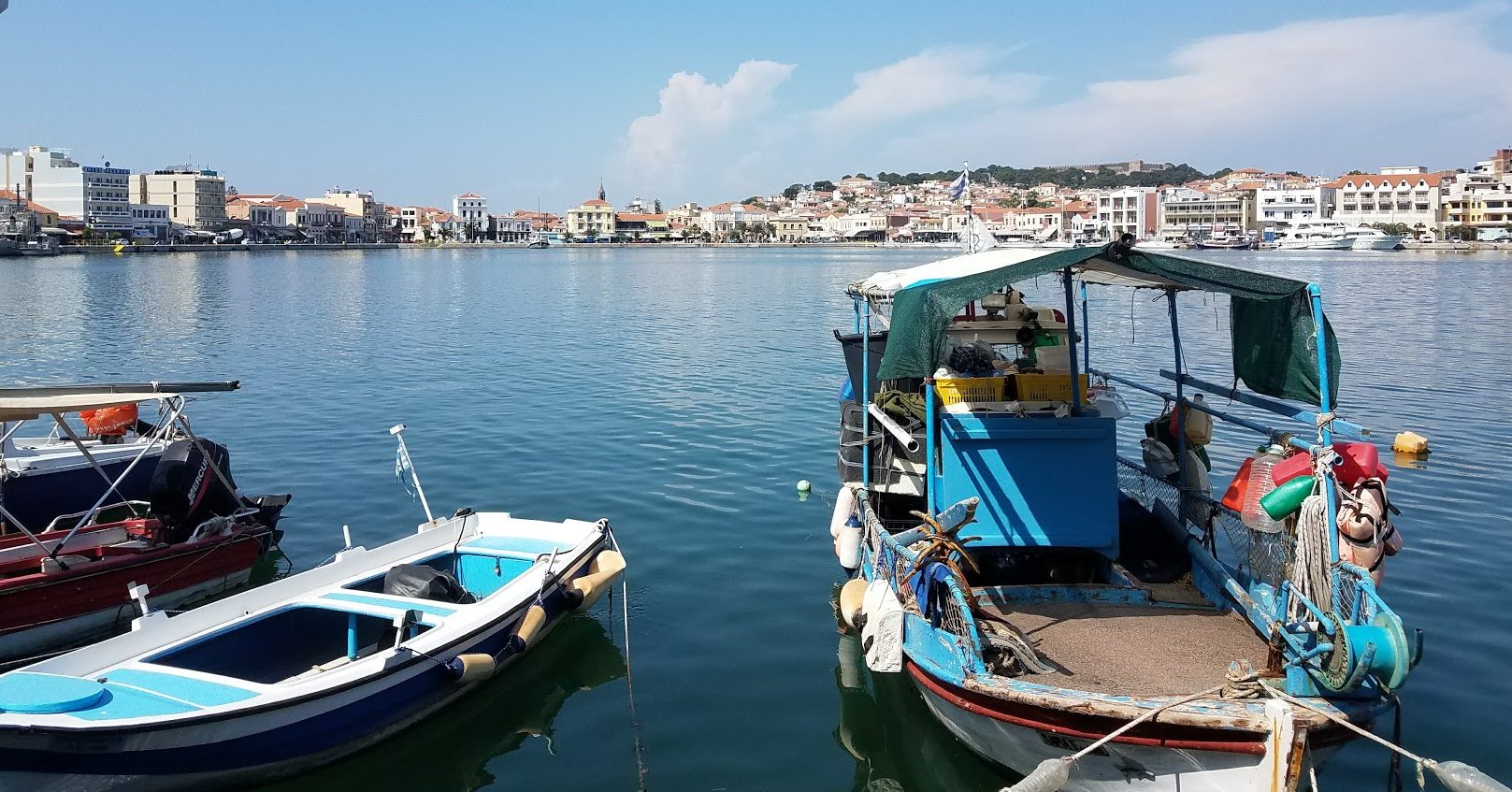
The Voluntourist: How many people are at the Moria Camp?
Ahmad: I hear now there is maybe 8,000 people in the Moria Camp, but I don’t know for sure.
The Voluntourist: Are people able to leave the camp freely? Can they come and go as they please?
Ahmad: We can leave camp freely. It is 1 euro to take bus to the city because there is nothing next to Moria Camp. People don’t always go outside Moria Camp because it is 1 euro going and 1 euro to come back. We receive 90 euro [a month] so only imagine if we go out every day. It is 60 euro a month for travel.

The Voluntourist: Is there school for the kids?
Ahmad: There is no school for children, but now there is NGO in Moria Camp for children. They do one hour of learning.
The Voluntourist: What do people do all day since they can’t work and there’s no school?
Ahmad: How we spend our day if no work and no school available we are waiting. I give you example of what I mean. We are very bored. We have nothing to do. What we do is we stand in line, any line. Morning wake up at 5:00am or 6:00am so [we] have time to stand in line for breakfast. We wait one or two hours for food in [the] food line. Maybe at 10:00am we line up to go see doctor. There are showers in Moria but it is very busy. Sometimes it takes me four hours to wait to shower. Sometimes I can’t because it’s too busy. It is not a good showers, [they are] very dirty. But the Greek cleaning come and do good job to clean, but it gets dirty so fast because there’s too many people in the camp. We wait in line for hours then we go back to line for lunch. After [we] go to see a lawyer and ask questions. Sometimes we ask questions not important, but we just want a change because we [are] bored. Our whole life in Moria is waiting in line. It has too many people in the camp.
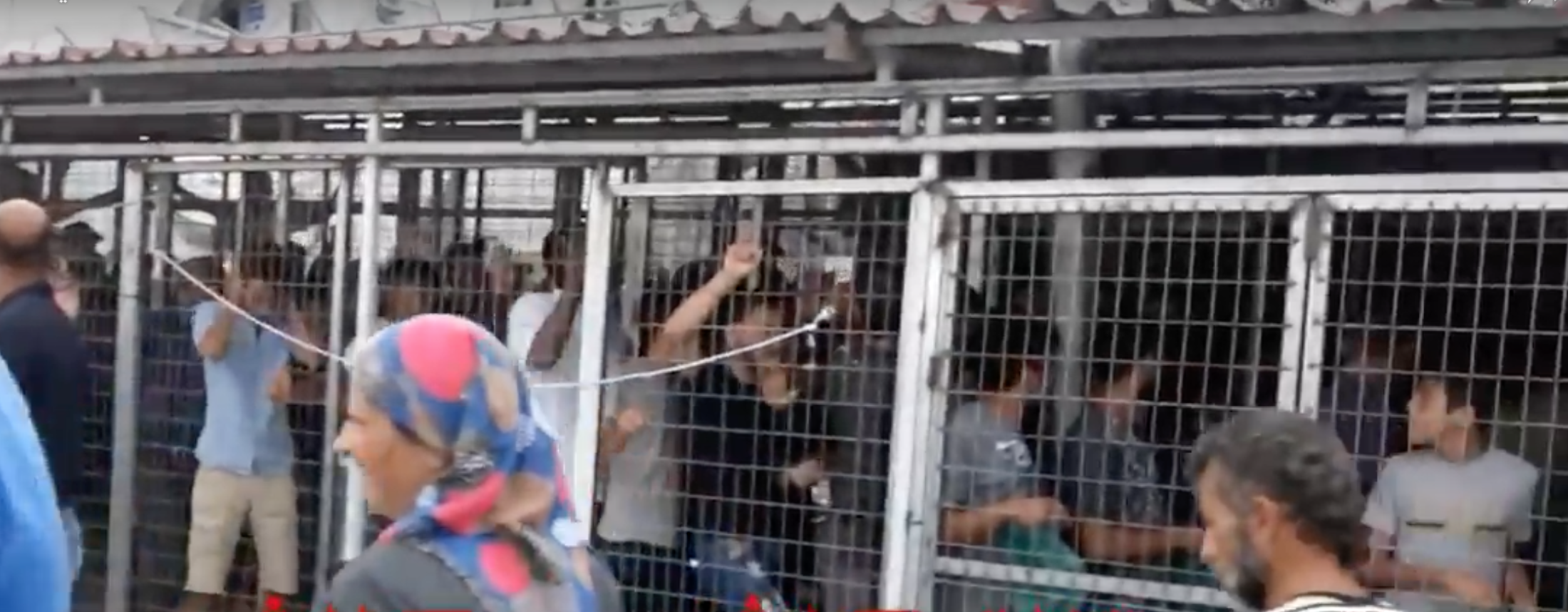
The Voluntourist: What are the conditions like in the Moria Camp?
Ahmad: Very bad. I don’t know why I am still here. Everyone else who came the same time as me has left. I am the only one, me and my brother. My brother is 19 I am 25. The food is bad. The conditions are bad. I live in a tent outside of Moria in the Olive Grove area. This place is really bad because in the winter it rains a lot. My tent is all water and also it is cold and windy. In my tent there is 10 people with me inside. The tent is not big we sometime sleep side by side. I am waiting for my decision but I don’t have paperwork from my doctor. I try to speak to a psychiatrist, but he does not give me appointment. He keeps postponing every time I go to him. There is fighting, a lot of fighting in camp. People I know who come at first are very good people never do drugs or bad things. But being here a long time, it makes you crazy. You feel like prisoner. You start doing bad things, maybe drugs. Many of my friends do drugs because they want to forget. There is fighting always between groups Afghan, Arab, always fights. At night time no organization in Moria. I try to go to the city because Moria at night is scary [and] problems happen a lot. At night if I am in Moria Camp I will be not sleeping maybe until 4:00am because I feel afraid to sleep in Moria because of fighting or because of problems. I sleep with my money in my underwear because I am afraid. People here are desperate. Sometimes people maybe can come to your tent with a knife and say give me all your money. I hear this happen a lot. For me it never happen, but I am afraid of this. This once happen to my friend. A group come in with knife they say give me everything. They beat my friend. My friend went to the UN and tell police but nothing happen. They said sorry we can’t help you. when I go to lawyer lawyer says UN should protect you. I go to the UN and they say no sorry. Everywhere I go I hear the word “sorry.” “Sorry we can’t help you.” “Sorry you must wait.” “Sorry this is how Greece is”. “Sorry Moria Camp is a bad representation of Europe.” I am sure everything in Moria Camp is not so good. Not so legal.
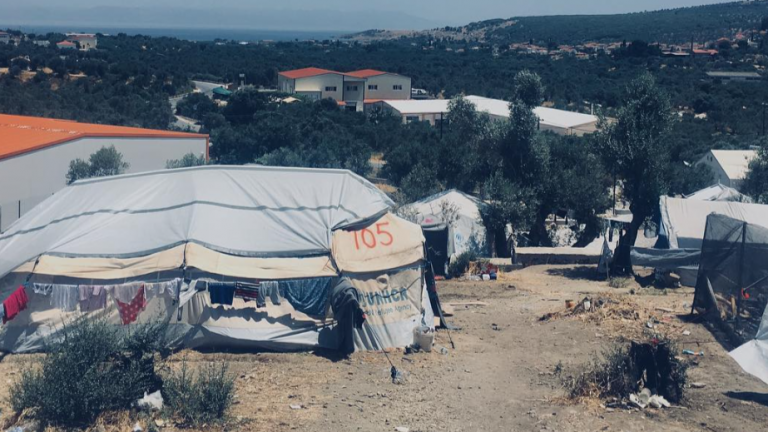
The Voluntourist: How are you treated by locals in Greece?
Ahmad: Very bad. A lot of bad looks and people not smiling. When they see refugees they look angry. They say, “why you here.” I try to go get haircut in city the man said to me, “no you need documents to cut hair.” The police are very not nice to us. One time I walking next to the taxi [and the] taxi man say to another taxi, “this boy steal from your taxi.” I said, “no I did not steal.” They called the police and the police come and humiliate me. I say, “I did not steal. Look at the camera because there camera on street and [you’ll] see I did not steal.” The police, said, “okay go go.” He did not say sorry of accusing me of doing something I didn’t do, but some locals are nice. They care and try to help, but sometimes I feel like they think we ruined their country.
The Voluntourist: You said you’re given 90 euros a month. Who gives it to you?
Ahmad: It is from UN. We register every month for cash assistance program. If you forget to sign up you lose your money for next month. You must sign up the start of every month. The Greek government doesn’t give any money to refugees.
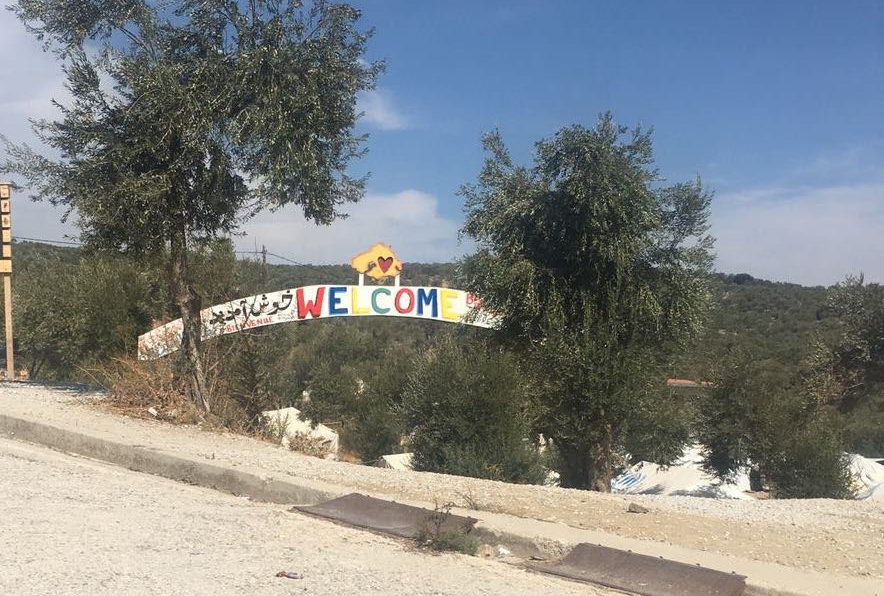
The Voluntourist: I understand all of the money goes towards your medication. What medication are you taking and are you getting proper medical attention?
Ahmad: I have to take medication for my stomach. I have a problem where I can’t eat food [with] spice or with rice or with bread. I have [an] extremely sensitive stomach. I take medication for this problem, but I must buy my own meals to cook because I can’t eat the food in the Moria Camp. The food is very unhealthy for me. It has a lot of salt, rice and pasta. I also take medication for my bad thoughts. I think a lot [about] the things I see in my country and people dying. Sometimes I can’t sleep. Sometimes I want to cry because I want to forget. I take this medication because it makes me relax. I couldn’t see a doctor in the camp because appointment always is postponed so I had to pay 50 euros to see a private doctor in the city. He prescribed me this medication.
The Voluntourist: I also understand you were selling coffee to earn an extra income and the Greek police stopped you from doing so. Why?
Ahmad: The police stopped me because it is illegal to work and not pay taxes. Also because it’s a health code violation. I wish I could work and pay taxes, but no one wants to give me a job. But you know why I am sad? I am sad because they say this is illegal, but the Moria camp is not illegal? Moria camp is of course against all laws and there is no health code here.
The Voluntourist: What do you want people to know about refugees in Greece, the Moria Camp and your situation?
Ahmad: It is very hard in Greece it is very hard. Greece is a beautiful country but not all the people are beautiful. People can be very racist here. They get angry fast, especially the police. They are violent you know when I see the police here I feel the same scary feeling I have when I see army in Syria. It is sad because police is supposed to protect me and others, but it is the opposite here. They see us in a bad way always. I want people to know that yes we left the war and we reached Europe, but it doesn’t mean we are okay. In fact the situation here makes anyone not be able to heal. There are people who have PTSD and anxiety nightmares and they get no help no medical help. Children are being raped and assaulted. It is a mess. I sometimes I forget that I am in Europe.

The Voluntourist: What can others to do help you?
Ahmad: Just to be aware to know that refugees are more than refugees. To realize that we are humans that we are desperate to live. That we want to build ourselves, that we don’t want to always be charity, that we want to accomplish and be proud of ourselves. I want people to help fight for our rights. To let Greece realize we are humans, to realize that if they were in our situation they will also want to open up coffee shops and open up barber shops. They are trying to have some sort of reality here. They want to feel normal or occupy their time. Imagine being in Moria camp 24/7 and not know when you get out. There is nothing to do. Of course you want to try to make something of yourself or you want to do something like work. When a person is sitting for hours and days and months and years doing nothing they will feel useless they will feel they don’t do anything. But being able to work or feel like you are working allows you to feel like you are doing something to support yourself and your family, that you are fighting and you are not giving up.
